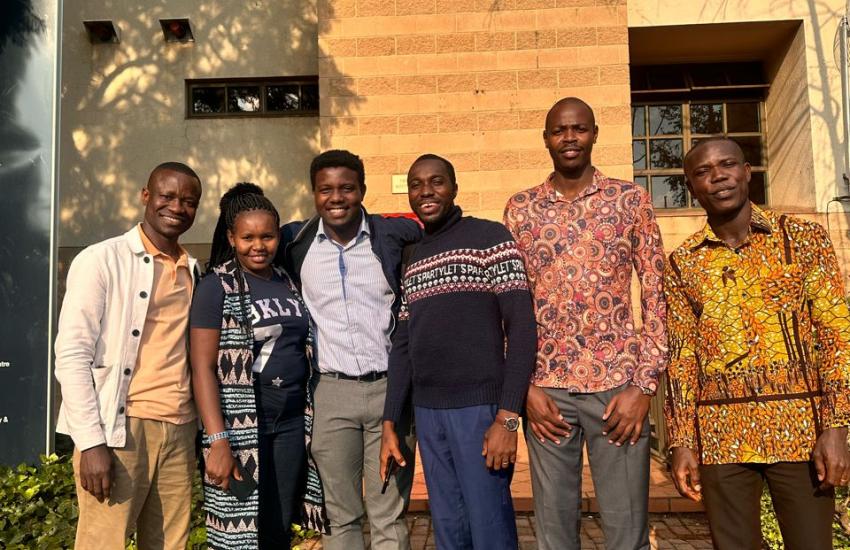IDS staff, student attend methodology workshop and country partner meeting at the Wits Business School, Johannesburg
The Institute for Development Studies was represented by Dr Obadiah Miroro, Paschalin Basil and Saina Kiprotich in a Methodology workshop and country partner meeting at the Wits Business School, Johannesburg. The Methodology workshop was in preparation for the project on the Contribution of the non-profit sector to African economies with a specific focus on the creation of jobs for young people.
The proposed project addresses, through a mixed methods approach, the knowledge gaps that exist regarding the economic contributions of various formations and organisations in the non-profit sector towards youth employment (both wage and self-employment) in 17 African countries namely, Burkina Faso, Cote d’Ivoire, Democratic Republic of Congo (DRC), Egypt, Ethiopia, Ghana, Kenya, Morocco, Mozambique, Nigeria, Rwanda, South Africa, Senegal, Tanzania, Uganda, Zambia and Zimbabwe. The project will be led by the Centre on African Philanthropy and Social Investment (CAPSI) at the Wits Business School in collaboration with several autonomous African-led networks of researchers and institutions in the selected countries.
The project fills the gap in the lack of data and information on the non-profit sector’s economic contribution towards dignified and fulfilling work for young people in Africa by asking the following research questions:
- What is the economic contribution of the non-profit sector to youth employment in Africa?
- What is the economic contribution of the non-profit sector to dignified and fulfilling work for young people in Africa?
- Within the non-profit sector, what are the sub-sectoral contributions to dignified and fulfilling work for young people in Africa?
- What are the emerging knowledge gaps within the non-profit sector and its sub-sectors?
- What is the state and nature of youth employment and engagement in these sub-sectors?
- What are the parameters at play in understanding the state and nature of youth employment in the sector and sub-sectors?
- What are the possibilities and opportunities for further employment in the non-profit sector for young people in Africa?
- What are the gender dimensions of the non-profit sector’s contribution to dignified and fulfilling work for young people in Africa?
- What role do donors (public and private) play in creating conditions or lack of for dignified and fulfilling work for young people in Africa?


